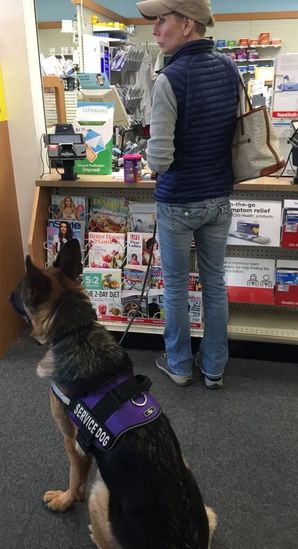Service dogs change people's lives.
 Heidi, a Psychiatric Service Dog with her handler.
Heidi, a Psychiatric Service Dog with her handler.
Address
|
HoursMonday- Friday:
7 a.m.- 6:30 p.m. 6:30 a.m.- 7 a.m. Available by Appt Only Saturday & Sunday: 8 a.m.- 5:00 p.m. |
Telephone |
|
